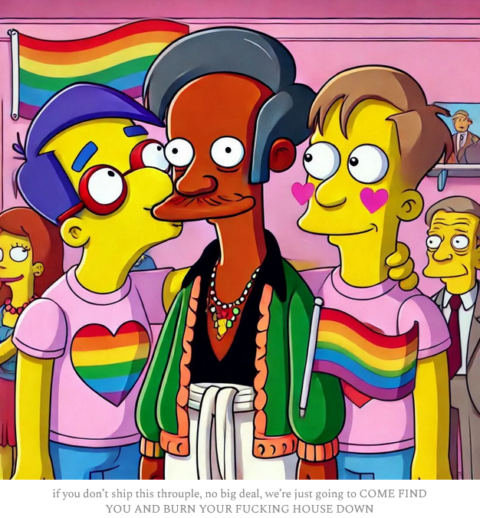Chris Bray checks in on the vocational mental health clinic known as the New York Times:
A cruel government official absolutely brutalized and devastated some journalists this week, in a horrifying showdown that the New York Times op-ed writer M Gessen bravely describes this morning:
Shortly before allowing reporters into the main chamber of the Supreme Court for oral arguments in United States v. Skrmetti, a court employee asked us all if we needed to use a bathroom. The men’s room was right next door, the staff member said, and the women’s room down the hall.
“Where should nonbinary people go?” one of the reporters asked.
An uncomfortable back-and-forth followed. The staff person seemed not to understand the question. In the end, there was no answer. It just didn’t seem to compute.
The men’s room is over there, the Nazi said, not even seeing what a vicious act this was.
This is the lede; given the richest real estate in journalism, Gessen opens a discussion of a Supreme Court case with the story of victims denied the right to drop a deuce in a manner that fully provides them with the rich tapestry of social equity. The arc of the moral universe is long, but it apparently bends toward just using a gendered toilet stall to wipe your ass. The piece goes on the warn about the American descent into Trumpian autocracy, in case you hadn’t guessed.
After an election season in which Tim Walz, of all people, was sent out to sell the narrative that JD Vance, of all people, was deeply weird and socially marginal, I constantly find myself seeing representations of strangeness and darkness and cruelty and horror that make me … shrug? “Which part is the bad part?”
I mentioned this yesterday, but I’m fixating this morning on the journalist who just crushed Pete Hegseth, just absolutely caught his ass, dead to rights, and bragged that she had the receipts. Mic drop, bitch — she got you! Your deviant behavior is on video. And then you watch the video, and it’s some way-obvious dads drinking a glass of whiskey together, obviously sober and acting with restraint, in a dead-center normal piece of social behavior.
This happens daily. HERE IS A SCARY WEIRD THING, a headline says, and I click on the link and see an unremarkable thing. The nonbinary journalist M Gessen is deeply concerned that the Supreme Court building is operated in such a bizarre way, consistent with a brutal descent into autocracy, not the socially reasonable way in which a diverse regime of toilet facilities are aligned with the infinite number of possible ways to represent your relationship to your crotch. M Gessen.
Take the lecture, America. This person is tired of you being so weird all the time.






